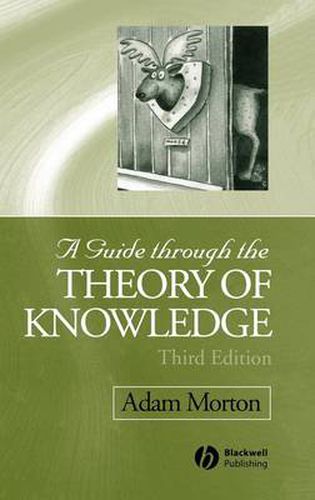Readings Newsletter
Become a Readings Member to make your shopping experience even easier.
Sign in or sign up for free!
You’re not far away from qualifying for FREE standard shipping within Australia
You’ve qualified for FREE standard shipping within Australia
The cart is loading…






The third edition of this highly acclaimed text is ideal for introductory courses in epistemology. Assuming little or no philosophical knowledge, it guides beginning students through the landmarks in epistemology, covering historically important topics as well as current issues and debates. This edition includes an entirely new chapter on externalism and epistemic virtues, and extensive revisions to other chapters. The suggestions for further reading, including electronic resources, have also been updated. It engagingly covers mainstream topics such as beliefs and perception, induction and probability, and knowledge of minds, as well as newer topics such as naturalistic epistemology, Bayesian epistemology, externalism, and moral knowledge. At the end of each chapter are reading questions that test students’ understanding of the presented information and thinking questions that challenge students and invite them into deeper reflection.
$9.00 standard shipping within Australia
FREE standard shipping within Australia for orders over $100.00
Express & International shipping calculated at checkout
The third edition of this highly acclaimed text is ideal for introductory courses in epistemology. Assuming little or no philosophical knowledge, it guides beginning students through the landmarks in epistemology, covering historically important topics as well as current issues and debates. This edition includes an entirely new chapter on externalism and epistemic virtues, and extensive revisions to other chapters. The suggestions for further reading, including electronic resources, have also been updated. It engagingly covers mainstream topics such as beliefs and perception, induction and probability, and knowledge of minds, as well as newer topics such as naturalistic epistemology, Bayesian epistemology, externalism, and moral knowledge. At the end of each chapter are reading questions that test students’ understanding of the presented information and thinking questions that challenge students and invite them into deeper reflection.